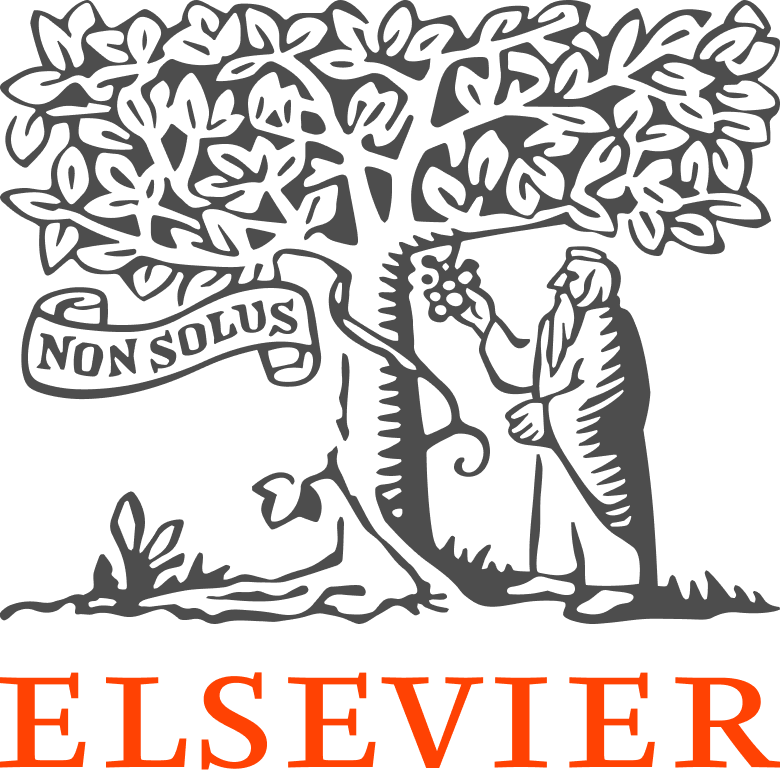How Can We Help?
5.28.05.28.0
Highlights of this release
 Funding information on Research output and Dataset editors, and OAI-PMH endpoints
Funding information on Research output and Dataset editors, and OAI-PMH endpoints
Pure now supports a more comprehensive display of funding information across our Research output and Dataset editors. Funding information, including funding acknowledgement text and abbreviated funder and funding number details, are available in a dedicated funding section on research output and dataset records. External harvesting services, utilizing OAI-PMH, are able to access the full acknowledgement text as displayed on a publication or dataset as well as award and project information.
See below for more info about funding information on editors and funding information in OAI-PMH...
 Roles in reporting
Roles in reporting
With this update, we've finalised the work on roles for the reporting module with the addition of organizational reporting roles. With this addition, it is possible to open up the reporting module to more users, as it is now possible to define what content users should be able to report on and define the level of the organizational hierarchy they should be able to report on content for.
 Internal Funding competitions
Internal Funding competitions
As part of our strategy to streamline operational processes and improve service options, we have now introduced the ability to create and run internal funding competitions as part of the Award management module. This new addition provides customers with a valuable new opportunity to implement and run internal funding programmes and also to undertake internal competitions as part of demand management required by external funding agencies.
Customers with internal funding enabled on the Award management module are able to create internal Funding opportunities, share with users and organisations, allow users to create Applications based on those internal opportunities. In conjunction with other Award management workflow options such as the Review content type and process manager/customer defined workflow, they can complete the review and decision making process from the initial stages of registering expressions of interest, through to successful/unsuccessful award decisions.
Advance Notice: Retire DB sync
This is an advanced notice of the intention to retire DB sync in June 2026. We will continue to fully support sync into Pure through XML and the API.
We understand that some customers will need to adjust their current processes for syncing data into Pure. We therefore recommend that you take an inventory of what data and how you currently sync data into Pure to prepare well in advance for the change.
As always, if you would like to have a discussion with our team on what this means for you, or you would like to connect your supporting teams with us, please contact Henrik Kragh-Hansen (h.kraghhansen@elsevier.com).
Advance Notice: Introduction of mandatory cloud processing for authentication into Pure
This is an advanced notice of the intention to introduce a mandatory cloud-native authentication mechanism for use with all Pure installations (on-premises and hosted). In order to ensure that Pure is always secure we work continuously to keep libraries and underlying functionality up to date. This helps us ensure that the libraries we use are updated to deal with new and emerging threats. In making the authentication mechanism for Pure a centrally managed, cloud-native service, we are able to update the mechanism for all customers with one action.
We are currently investigating whether we create a Pure cloud-native authentication service or make use of the Elsevier authentication service that most customers are familiar with in their interactions with Scopus and Scival. If you have feedback on this investigation, please take up contact with us. (UPDATE: We no longer consider this mandatory cloud-native authentication mechanism)
The rest of the authentication facilitation remains the same. There are no changes to ability to use SSO for authentication and also no changes to the provision of users inside Pure.
As always, if you would like to have a discussion with our team on what this means for you, or you would like to connect your supporting teams with us, please contact Henrik Kragh-Hansen (h.kraghhansen@elsevier.com).
We are pleased to announce that version 5.28.0 (4.47.0) of Pure is now released.
Always read through the details of the release - including the Upgrade Notes - before installing or upgrading to a new version of Pure.
Release date: 9th of October
Hosted customers:
- Staging environments (including hosted Pure Portal) will be updated 11th of October (APAC + Europe) and 12th of October (North/South America).
- Production environments (including hosted Pure Portal) will be updated 25th of October (APAC + Europe) and 26th of October (North/South America).
Advance Notice
As mentioned in 5.27.2 Release Notes, we have added the following new sub-processors to the list of sub-processors that may assist Elsevier in providing Pure services:
Entity name |
Location |
Service |
|---|---|---|
| Elsevier Canada | Canada | Support and related services |
1. Web accessibility
1.1. Updated WCAG certification obtained for Pure Portal
Pure Portal has passed the annual WCAG audit and is certified WCAG 2.1 compliant.
| WCAG 2.1 | Supports | Supports with exceptions | Does not support |
| A (30 total) | 24 | 6 | 0 |
| AA (20 total) | 16 | 4 | 0 |
| Total | 40 | 10 | 0 |
For more details of the WCAG audit and the full certificate, see Pure Accessibility overview.
2. Pure Core: Administration
2.1. Funding information on RO and Datasets
Dedicated funding information section on Research output and Dataset editors
Funding information, including funding acknowledgement text and abbreviated funder and funding number details, are available in a dedicated funding section on research output and dataset records. External harvesting services utilizing e.g. OAI-PMH or Pure API endpoints, are able to access the full acknowledgement text.
Funding information from Research outputs were previously captured in the bibliographic note section of the Research output editor and will now only be available in the funding section.
Funding text and abbreviated funding details can also be manually added to a record, and funding information from Research outputs will be added automatically when imported from Scopus or Web of Science (WoS). Funding information updates are also possible via the Available updates functionality.
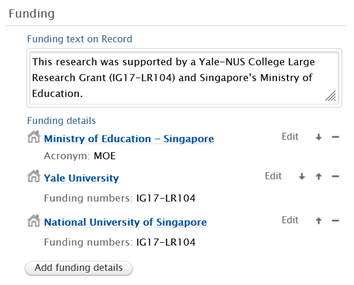
Requirements
The funding section is immediately available and does not require any additional actions to enable or display the information.
On update to 5.28.0, a dedicated backfill job will automatically scan all research output XML files and add any funding acknowledgement texts to the new funding section on the editor. No configuration is required on the part of a Pure administrator.
Recommendations and Available resources
The funding section on Research outputs and Datasets may duplicate information found in related Project and Award records. We recommend that institution-relevant funding details always be captured on awards and related to research outputs and datasets via projects.
To add a tooltip to the funding section to help users, Pure administrators can add an appropriate text resource (Admininstrator > 'Messages and text resources', then search for 'fundingInformation-group-help') which will make the tooltip (i) appear next to the heading. Note: this tooltip will appear on both on the Research Output editor as well as Dataset editor as it is a shared resource.
For more information and guidance on how to configure available updates to process funding acknowledgement text, please review the Pure 5.13 release notes
For more information on related OAI-PMH updates in this release Funding on datasets in OAI-PMH and Funding on publications in OAI-PMH
Read more about how Pure supports Open Access and compliance.
Pure Manual > Pure for Technical Administrators > Core functionality > Content import, synchronisation, and export > Open Access support in Pure
2.2. Multiple and exclusively external affiliations allowed on Prizes
Adding and saving external affiliations on Prizes is now in line with what is possible on Research outputs. Prizes won by your researchers at their previous institution(s) can now be imported/created and showcased with ease.
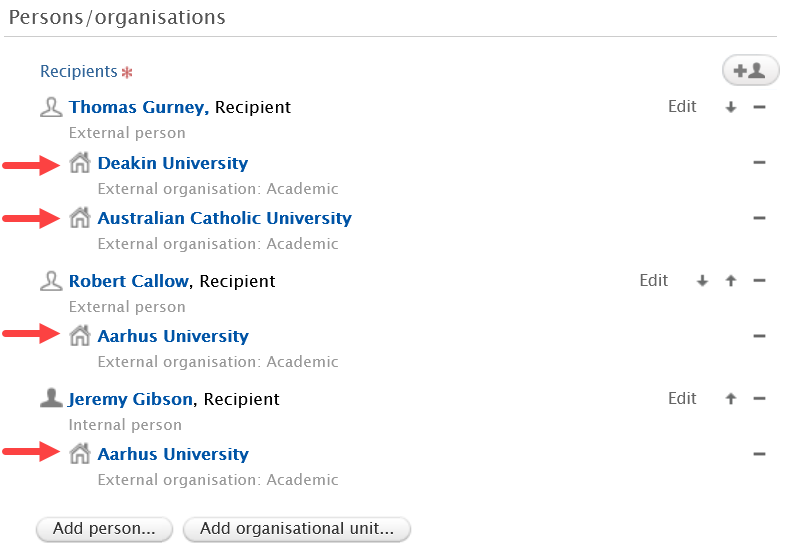
Requirements
2.3. BibTeX export format update
@masterthesis reference added to Pure record mapping
For all customer code bases, Pure now maps masters theses from the Research output content type (Research output > Thesis > Masters thesis) to the BibTeX @mastersthesis type. Previously, for all code bases apart from DK, the masters thesis template was mapped to the BibTeX @phdthesis type and to the @misc type for DK base. Customer-defined thesis templates will remain mapped to @phdthesis for all code bases except DK, which remains mapped to @misc.
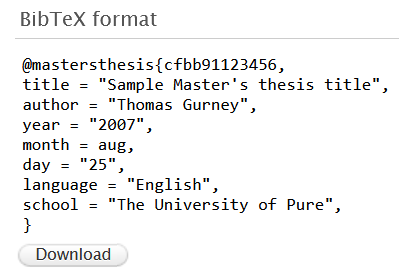
Requirements
BibTeX export formats are only available on Research output content type records. The Thesis template needs to be enabled on the Research output content type. The mapping will be automatically updated on upgrade to 5.28.0.
2.4. Database export
We've updated the database export functionality used for support to no longer require use of personal Crowd credentials and instead either use server credentials for our hosted customers or a special, time-limited token for our on-premise customers. Please see the database upload guide for details.
3. Unified Project Model and Award Management
3.1. Create and run internal funding competitions
You can now create internal Funding opportunities, share them with users and Organizations, and allow users to create Applications based on those internal opportunities. In conjunction with functionality such as the review workflow and the process manager- or customer-defined workflow, you can complete review and decision-making processes from the initial stages through to award decisions. With this feature, you can add internal organizations as the funding organization to a Funding opportunity, an Application, or an Award.
This functionality helps you meet external funding agencies’ demand management requirements by enabling you to create and run internal funding programs and to undertake internal competitions.
Changes include the following:
- A new template type for internal funding.
- Ability to create successor relations between Funding opportunities and Applications.
- New metadata, including:
- Internal organizations as funders (Funding opportunities, Applications, Awards)
- Contact user
- Contact emails for general enquiries
- Document and document management
- New filtering and reporting options.
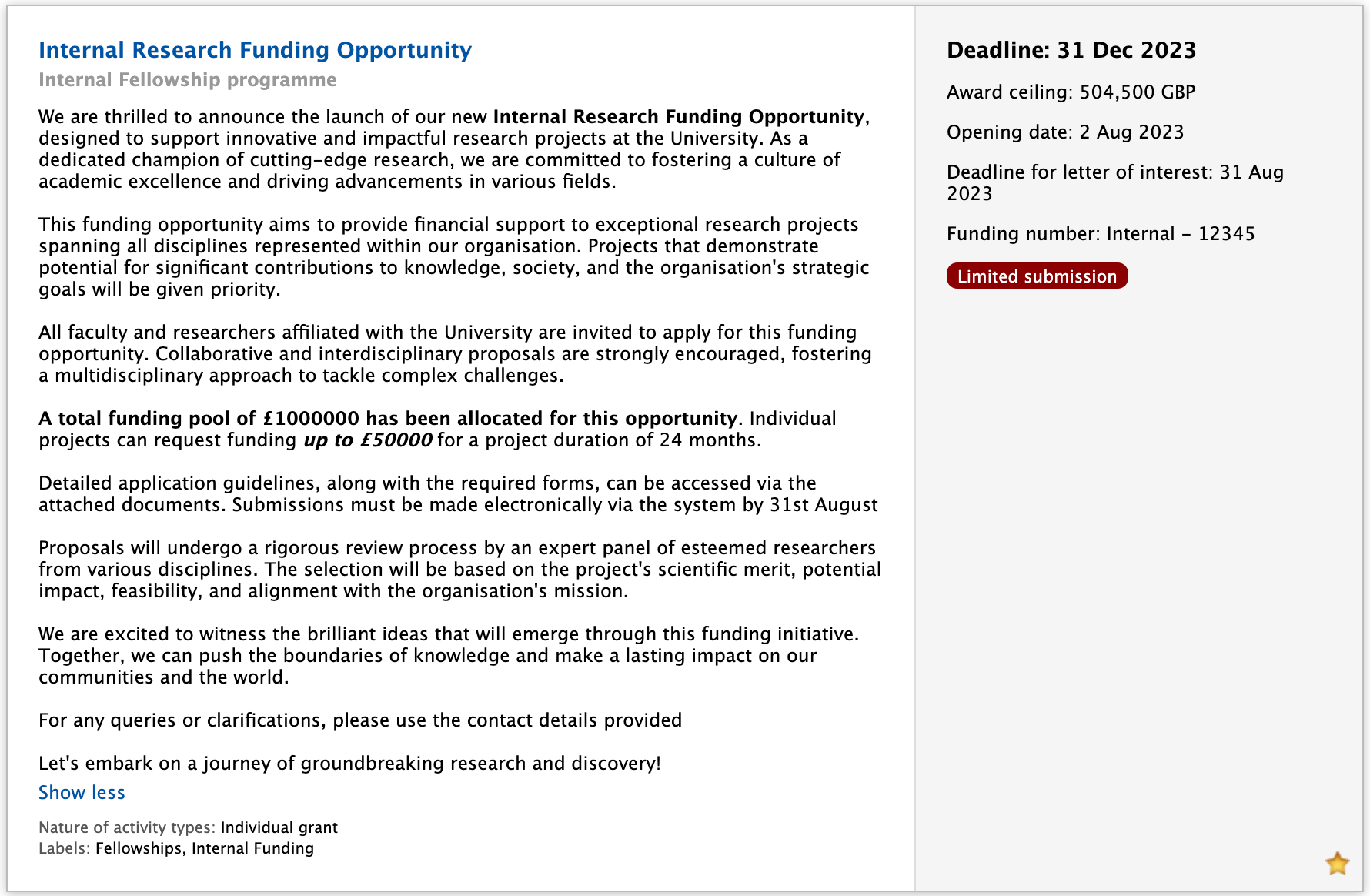
Requirements
This functionality is a part of a managed program and can be enabled by agreement only. We recommend that customers initially engage with the internal funding feature in staging environments to familiarize themselves with the functionality and to formulate local policy and procedures. Contact Pure-Support@elsevier.com for more information.
An Award Management Module subscription is required for the following:
- Sharing, direct application, and successor relationships between Funding opportunities and Applications.
- Reviews to support application decisions based on internal funding opportunities.
- Application-type workflow using the process manager workflow feature.
- For existing users of customer defined workflow wishing to switch to the process manager, we request an initial consultation with the Pure product team to ensure that the implications are clear and that users test the functionality in a suitable test environment as well as formulate local policy and procedures. For more information contact Pure-Support@elsevier.com.
We provide our customers with the opportunity to choose which functionality to implement. Some of the functionality may start to be offered as a premium addition to the core Award Management Module, particularly for new customers.
Available resources
- Pure Client Space > Award management
3.2. Versioning and interface improvements for documents on Awards
The user interface improvement for Awards makes it easier to view documents by type in both reader and editor views. You can now version documents and edit versions separately. This brings documents on the Award content type in line with those on Applications and Ethical reviews.
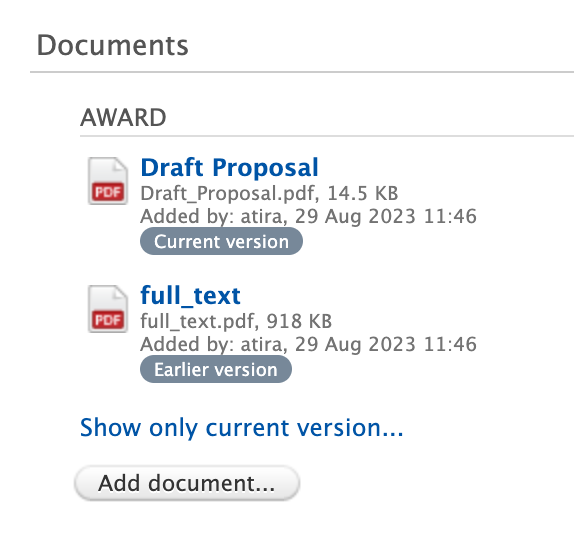
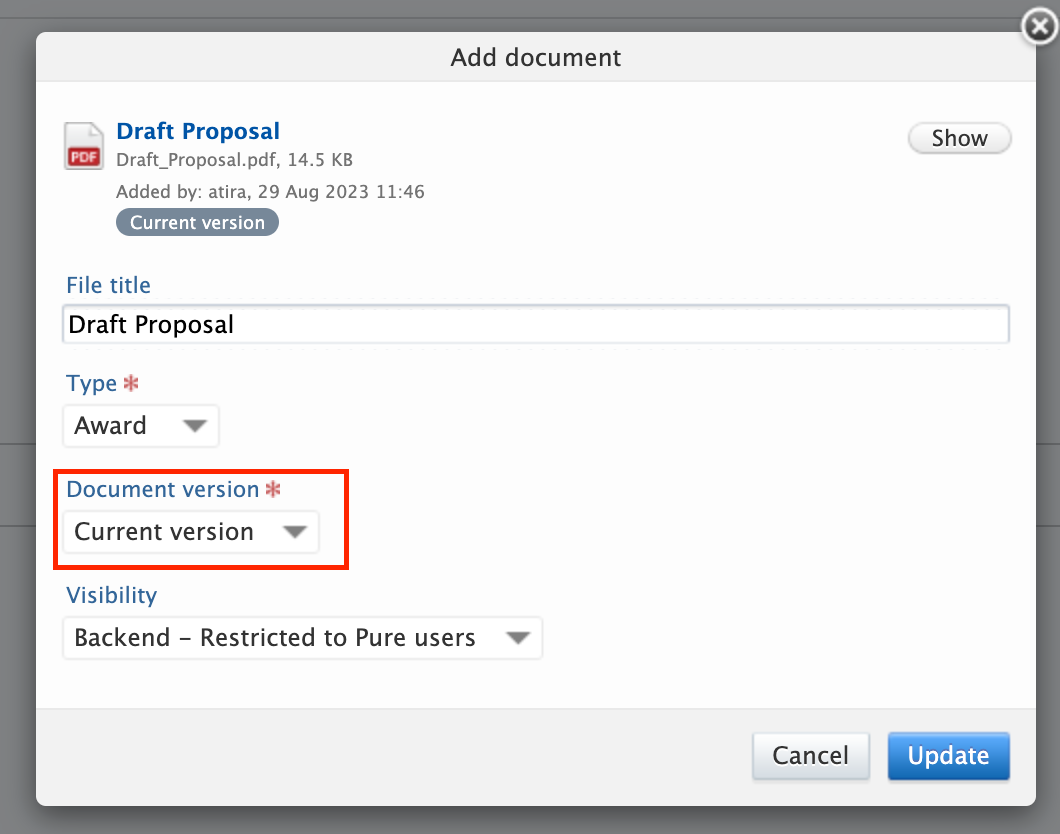
Requirements
- Award Management Module subscription.
3.3. Raise administrative milestones
To improve task management in Pure and in response to customer demand, it is now possible for administrators to configure whether personal users can create and assign administrative milestones. This enables investigators to send task requests to their supporting editorial staff.
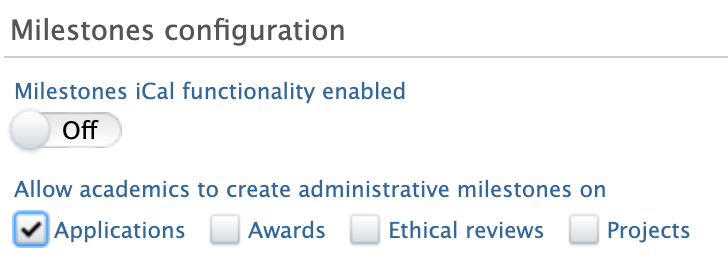
Requirements
- Award Management Module subscription.
- Administrators must select the appropriate content type under Administrator > Award management > Module configuration > Milestones configuration.
3.4. Review functionality
3.4.1. Flexible review process: recall, edit, and re-open reviews
Reviewers can now edit their previously submitted responses before the review editor finalizes the review. Review editors can now re-open completed reviews, allowing further comments to be added. For audit purposes, the date and time of re-opening the review is available in the comments section.
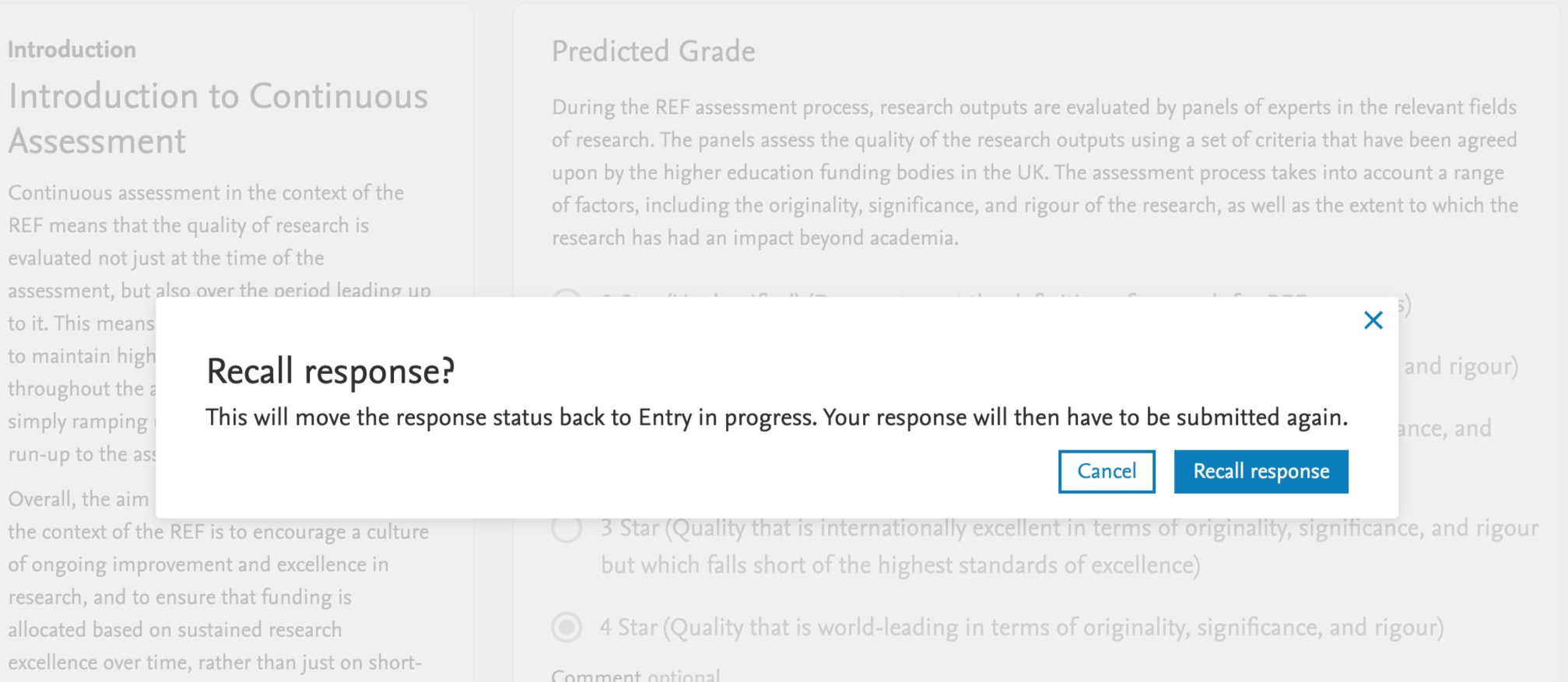

3.4.2. Show/hide final grades to the author or applicant
Review editors can now show or hide final grades on templates and in the review editor of the relevant content types. If final grades are turned off, they are also hidden from other users in the review overview screens. To prevent overriding these settings, Review editors can lock them on the review templates.

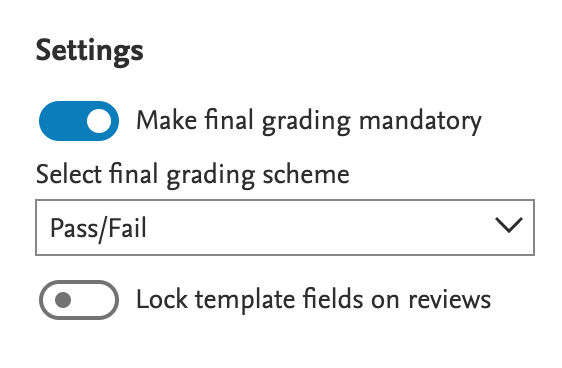
3.4.3. The role Editor of Reviews is now based on content type
To maintain different review contexts, the Editor of Reviews role is now specific to content types. For example, it is now possible to grant the role of Editor of Application Reviews (with permissions to only create and manage reviews on the Application content type), or the Editor of Research Output Reviews role (with permissions for Research output reviews). This ensures Editors of one content type are unable to view the reviews of the other, although it is possible to grant both roles to the same user.
Requirements
To all new features in the review functionality, the following prerequisites apply:
- Award Management Module
- For UK REF Research output context, only the REF Assessment Module
- The functionality is in the early phases of rollout and under vendor control. We recommend that customers initially engage with the internal funding feature in staging environments to familiarize themselves with the functionality and to formulate local policy and procedures. Contact Pure-Support@elsevier.com for more information.
- For existing users of the review functionality, it is crucial to update Editor of Reviews users manually as the former Editor of Reviews role is no longer available from 5.28.0. However, the roles Administrator of Reviews and Administrator of Review Templates are not affected.
Available resources
- Pure Client Space > Review Content Type
4. Pure Core: Web services
4.1. OAI-PMH: Datasets
In line with the Plan S requirements for Open Access compliance, in this release we have expanded support for OAI-PMH in Pure.
It is now possible to export datasets via the standard OAI-PMH metadata formats: oai_cerif_openaire (CERIF), mods (MODS), and oai_dc (DC).
The following new fields are available on datasets in CERIF:
- Funding information
- Dates
- File locations
Datasets are included also in MODS and Dublin Core.
You can list all datasets via the new OAI-PMH set: datasets:all
Click here for more details…
CERIF
The following new fields are now included in the dataset output in CERIF:
- Funding information
- Dates
- File locations
An example of the cerif output is shown below:
<cerif:OriginatesFrom> <cerif:Funding> <cerif:Acronym>TUG</cerif:Acronym> <cerif:Identifier type="/dk/atira/funding/fundingdetails/fundingnumber">TUGU-5678</cerif:Identifier>
<cerif:Description xml:lang="en">This work was funded by Test University and Another University.</cerif:Description>
<cerif:Funder> <cerif:OrgUnit id="75cbdb07-a7b5-4504-8623-b4481c1b68b6">
<cerif:Name xml:lang="en">Test University</cerif:Name>
</cerif:OrgUnit> </cerif:Funder> </cerif:Funding></cerif:OriginatesFrom><cerif:OriginatesFrom> <cerif:Funding> <cerif:Description xml:lang="en">This work was funded by Test University and Another University.</cerif:Description>
<cerif:Funder> <cerif:OrgUnit id="0630eb3b-1c01-42b1-aba9-ccbcb059844f">
<cerif:Name xml:lang="en">Another University</cerif:Name>
</cerif:OrgUnit> </cerif:Funder> </cerif:Funding></cerif:OriginatesFrom> |
<cerif:Dates> <cerif:Available startDate="2017"/>
<cerif:Collected startDate="2013-01-01" endDate="2016-07-01"/>
<cerif:Created startDate="2016-11-01" endDate="2016-12-01"/>
<cerif:Submitted startDate="2017"/>
</cerif:Dates> |
<cerif:FileLocations> <cerif:Medium> <cerif:Type scheme="/dk/atira/pure/dataset/documents">dataset</cerif:Type>
<cerif:Title xml:lang="en">report</cerif:Title>
<cerif:URI>http://<pure-server>/portal/files/24817/report.xml</cerif:URI> <cerif:MimeType>application/xml</cerif:MimeType> <cerif:Size>74344</cerif:Size> <cerif:License scheme="/dk/atira/pure/dataset/documentlicenses">cc-by</cerif:License>
</cerif:Medium></cerif:FileLocations> |
MODS
Datasets are now available in MODS format, as shown in the example below:
Dublin Core
Datasets are also available in Dublin Core:
4.2. OAI-PMH: Funding information
As part of expanding support for OAI-PMH we have included funding information.
All funding information is now available via OAI-PMH in the CERIF format, while MODS includes only the funding text.
Click here for more details...
CERIF
Funding details is now included in CERIF for both research output, patents, and datasets. An example of this output is shown below.
<cerif:OriginatesFrom><cerif:Funding><cerif:Acronym>NSFC</cerif:Acronym><cerif:Identifier type="/dk/atira/funding/fundingdetails/fundingnumber">822044593</cerif:Identifier>
<cerif:Description xml:lang="en">This study is funded by the National Natural Science Foundation of China (No. 822044593 ), the State Key Laboratory for Chemistry and Molecular Engineering of Medicinal Resources ( Guangxi Normal University ) ( CMEMR2022-B11 ), and the Natural Science Foundation of the Jiangsu Higher Education Institutions of China ( 22KJB360018 and 22KJB310025 ).</cerif:Description>
<cerif:Funder><cerif:OrgUnit id="3ed69b17-00f3-4976-baa9-097b31aa10d5">
<cerif:Name xml:lang="en">National Natural Science Foundation of China</cerif:Name>
</cerif:OrgUnit></cerif:Funder></cerif:Funding></cerif:OriginatesFrom><cerif:OriginatesFrom><cerif:Funding><cerif:Acronym>GXNU</cerif:Acronym><cerif:Identifier type="/dk/atira/funding/fundingdetails/fundingnumber">CMEMR2022-B11</cerif:Identifier>
<cerif:Description xml:lang="en">This study is funded by the National Natural Science Foundation of China (No. 822044593 ), the State Key Laboratory for Chemistry and Molecular Engineering of Medicinal Resources ( Guangxi Normal University ) ( CMEMR2022-B11 ), and the Natural Science Foundation of the Jiangsu Higher Education Institutions of China ( 22KJB360018 and 22KJB310025 ).</cerif:Description>
<cerif:Funder><cerif:OrgUnit id="c6db9909-a466-4338-ac11-b4f2cb7ee264">
<cerif:Name xml:lang="en">Guangxi Normal University</cerif:Name>
</cerif:OrgUnit></cerif:Funder></cerif:Funding></cerif:OriginatesFrom><cerif:OriginatesFrom><cerif:Funding><cerif:Identifier type="/dk/atira/funding/fundingdetails/fundingnumber">22KJB310025</cerif:Identifier>
<cerif:Identifier type="/dk/atira/funding/fundingdetails/fundingnumber">22KJB360018</cerif:Identifier>
<cerif:Description xml:lang="en">This study is funded by the National Natural Science Foundation of China (No. 822044593 ), the State Key Laboratory for Chemistry and Molecular Engineering of Medicinal Resources ( Guangxi Normal University ) ( CMEMR2022-B11 ), and the Natural Science Foundation of the Jiangsu Higher Education Institutions of China ( 22KJB360018 and 22KJB310025 ).</cerif:Description>
<cerif:Funder><cerif:OrgUnit id="e99ea5a8-4ad0-4a98-9924-06fb7c60bab2">
<cerif:Name xml:lang="en">Natural Science Research of Jiangsu Higher Education Institutions of China</cerif:Name>
</cerif:OrgUnit></cerif:Funder></cerif:Funding></cerif:OriginatesFrom><cerif:OriginatesFrom><cerif:Funding><cerif:Description xml:lang="en">This study is funded by the National Natural Science Foundation of China (No. 822044593 ), the State Key Laboratory for Chemistry and Molecular Engineering of Medicinal Resources ( Guangxi Normal University ) ( CMEMR2022-B11 ), and the Natural Science Foundation of the Jiangsu Higher Education Institutions of China ( 22KJB360018 and 22KJB310025 ).</cerif:Description>
<cerif:Funder><cerif:OrgUnit id="c9f3631e-fc9f-4130-8287-518409a8114c">
<cerif:Name xml:lang="en">Key Laboratory of Bioorganic Chemistry and Molecular Engineering, Ministry of Education</cerif:Name>
</cerif:OrgUnit></cerif:Funder></cerif:Funding></cerif:OriginatesFrom> |
MODS
Funding text is now included in MODS for both research output, patents, and datasets. An example of this output is shown below.
<mods:note type="funding" xlink:type="simple" xml:lang="eng">This study is funded by the National Natural Science Foundation of China (No. 822044593 ), the State Key Laboratory for Chemistry and Molecular Engineering of Medicinal Resources ( Guangxi Normal University ) ( CMEMR2022-B11 ), and the Natural Science Foundation of the Jiangsu Higher Education Institutions of China ( 22KJB360018 and 22KJB310025 ).</mods:note>
|
DC
Dublin Core does not have any suitable fields for funding information.
4.3. OAI-PMH: Files on Research Output and Datasets
In release 5.28 of Pure we have expanded the details available on electronic version files on research outputs and of files on datasets. These are available in the standard formats: CERIF, MODS, and Dublin Core.
Click here for more details...
CERIF
Electronic version files are now available in CERIF, as shown in the example below:
<cerif:FileLocations><cerif:Medium><cerif:Type scheme="/dk/atira/pure/researchoutput/electronicversion/versiontype">publishersversion</cerif:Type>
<cerif:Title xml:lang="en">report.pdf</cerif:Title>
<cerif:URI>http://<pure-server>/portal/files/25927/report.pdf</cerif:URI><cerif:MimeType>application/pdf</cerif:MimeType><cerif:Size>20043</cerif:Size><cerif:License scheme="/dk/atira/pure/core/document/licenses">cc_by</cerif:License>
</cerif:Medium></cerif:FileLocations> |
MODS
In MODS, electronic version files are now expressed in a single element (physicalDescription). File size and individual access status is now available.
<mods:note type="version identification" displayLabel="report.pdf" ID="file_20701">publishersversion</mods:note>
<mods:note type="license" displayLabel="report.pdf" ID="file_20701">cc_by</mods:note>
<mods:note type="document visibility" displayLabel="report.pdf" ID="file_20701">FREE</mods:note>
|
<mods:physicalDescription><mods:form authority="marcform">electronic</mods:form>
<mods:note type="title" xlink:type="simple">report</mods:note>
<mods:internetMediaType>application/pdf</mods:internetMediaType><mods:extent unit="bytes">20043</mods:extent>
<mods:note type="location" xlink:type="simple" xlink:href="http://<pure-server>/portal/files/25927/report.pdf"/>
<mods:note type="visibility" xlink:type="simple">FREE</mods:note>
<mods:note type="license" typeURI="/dk/atira/pure/core/document/licenses" xlink:type="simple">cc_by</mods:note>
<mods:note type="version" typeURI="/dk/atira/pure/researchoutput/electronicversion/versiontype" xlink:type="simple">publishersversion</mods:note>
<mods:note type="access" typeURI="/dk/atira/pure/core/openaccesspermission" xlink:type="simple">open</mods:note>
</mods:physicalDescription> |
Dublin Core
The export of electronic files is now also included in Dublin Core.
<identifier>https://<pure-server>/ws/files/20702/report.pdf</identifier> |
<dc:identifier type="/dk/atira/pure/researchoutput/electronicversion/versiontype/publishersversion">http://<pure-server>/ws/files/25927/report.pdf</dc:identifier>
|
4.4. OAI-PMH: Identifier types and name identifiers
We have improved support for identifiers on research output and datasets in MODS and Dublin Core, such that the identifier type and url are shown together with the ID.
Click here for more details...
MODS
Name identifiers and identifier types/URIs has been added to MODS:
<mods:identifier type="local">PURE: 19412</mods:identifier>
<mods:identifier type="local">PURE UUID: 5fb04e8f-2f48-4942-bb63-1df82f9aa63a</mods:identifier>
<mods:identifier type="local">Scopus: 85168535696</mods:identifier>
<mods:identifier type="local">PubMed: 37597675</mods:identifier>
<mods:identifier type="local">handle.net: https://hdl.handle.net/test_university_pure/5fb04e8f-2f48-4942-bb63-1df82f9aa63a</mods:identifier>
|
<mods:identifier type="pure/id">25923</mods:identifier>
<mods:identifier type="pure/uuid">1ca877f1-4b75-44d5-a003-13e246dff730</mods:identifier>
<mods:identifier type="scopus">85168535696</mods:identifier>
<mods:identifier type="pmid">37597675</mods:identifier>
<mods:identifier type="hdl" typeURI="http://id.loc.gov/vocabulary/identifiers/hdl">test_university_pure/5fb04e8f-2f48-4942-bb63-1df82f9aa63a</mods:identifier>
<mods:identifier type="doi" typeURI="http://id.loc.gov/vocabulary/identifiers/doi">10.1016/j.jep.2023.117058</mods:identifier>
|
MODS: NAME IDENTIFIERS (NEW)
<mods:name type="personal" xlink:type="simple" authority="local">
<mods:role><mods:roleTerm type="text" authority="pure/role">author</mods:roleTerm>
</mods:role><mods:nameIdentifier type="pure/uuid">d5ef5eea-e0a0-4e84-bb16-75fd251eb1db</mods:nameIdentifier>
<mods:nameIdentifier type="isni" typeURI="http://id.loc.gov/vocabulary/identifiers/isni">000000022265270X</mods:nameIdentifier>
<mods:nameIdentifier type="dai-nl" typeURI="info:eu-repo/dai/nl">30435354X</mods:nameIdentifier>
<mods:nameIdentifier type="orcid" typeURI="http://id.loc.gov/vocabulary/identifiers/orcid">0000-0002-2265-270X</mods:nameIdentifier>
<mods:namePart type="given">John 'Internal-Person'</mods:namePart>
<mods:namePart type="family">Doe</mods:namePart>
<mods:affiliation>Test University</mods:affiliation></mods:name> |
Dublin Core
Identifiers in DC now have types:
<identifier>https://hdl.handle.net/test_university_pure/5fb04e8f-2f48-4942-bb63-1df82f9aa63a</identifier>
<identifier>https://<pure-server>/ws/files/20702/report.pdf</identifier> |
<dc:identifier type="handle.net">https://hdl.handle.net/test_university_pure/5fb04e8f-2f48-4942-bb63-1df82f9aa63a</dc:identifier>
<dc:identifier type="/dk/atira/pure/researchoutput/electronicversion/versiontype/publishersversion">https://<pure-server>/ws/files/19710/report.pdf</dc:identifier>
<dc:identifier type="/dk/atira/pure/links/researchoutput">http://www.scopus.com/inward/record.url?scp=85168535696&partnerID=8YFLogxK</dc:identifier>
|
4.5. OAI-PMH: Schema upgrades
In this release we have also updated the metadata schemas for CERIF and MODS. the CERIF schema has been upgraded to version 1.2 and the MODS schema has been updated to version 3.8. There is no change to the Dublin Core metadata schema.
More details on these updates are listed below.
Click here for more details...
CERIF (1.1 → 1.2)
We have upgraded to Openaire CERIF Profile schema version 1.2 (released June 2023).
More: https://openaire-guidelines-for-cris-managers.readthedocs.io/en/v1.2.0/introduction.html#versions
Note on CERIF XML import backwards compatibility: Pure is not able to import old CERIF XML exports (v1.1).
MODS (3.3 → 3.8)
We have upgraded to MODS schema version 3.8 (released September 2022).
More: https://loc.gov/standards/mods/mods-3-8-announcement.html
DC (1.1 – no update)
We are already on the latest DCMES schema version 1.1 (released February 2008).
4.6. OAI-PMH: Miscellaneous
In this section we describe additional updates to OAI-PMH that are included in release 5.28.
Click here for more details...
CERIF
We have corrected the way we output classifications.
<cerif:Status scheme="/dk/atira/pure/researchoutput/status/epub">E-pub ahead of print</cerif:Status>
|
<cerif:Status scheme="/dk/atira/pure/researchoutput/status">epub</cerif:Status>
|
MODS
Preprint template type is now visible in MODS.
<mods:genre authority="dct" type="publicationType">Preprint</mods:genre>
|
DC
Dublin Core elements now use the dc: namespace prefix.
Keywords are exported in all available languages, and classified keywords have been grouped:
<subject>Chemical interaction</subject><subject>Combination mechanism</subject><subject>Ischemic stroke</subject><subject>Ligusticum chuanxiong hort</subject><subject>Salvia miltiorrhiza bunge</subject><subject>Synergistic effect</subject><subject>/dk/atira/pure/subjectarea/asjc/3000/3004</subject><subject>Pharmacology</subject><subject>/dk/atira/pure/subjectarea/asjc/3000/3002</subject><subject>Drug Discovery</subject> |
<dc:subject xml:lang="eng">Chemical interaction</dc:subject>
<dc:subject xml:lang="eng">Combination mechanism</dc:subject>
<dc:subject xml:lang="eng">Ischemic stroke</dc:subject>
<dc:subject xml:lang="eng">Ligusticum chuanxiong hort</dc:subject>
<dc:subject xml:lang="eng">Salvia miltiorrhiza bunge</dc:subject>
<dc:subject xml:lang="eng">Synergistic effect</dc:subject>
<dc:subject>/dk/atira/pure/subjectarea/asjc/3000/3004; name=Pharmacology</dc:subject><dc:subject>/dk/atira/pure/subjectarea/asjc/3000/3002; name=Drug Discovery</dc:subject> |
4.7. Pure API: Datasets and equipment/facilities support
The Pure API now supports the management of datasets and equipment/facilities.
4.8. Pure API: Consolidated documentation
The user-guides and the reference documentation has been consolidated and is now available directly in the API when accessing /ws/api in a browser.
5. Reporting
5.1. Roles
Organisational reporter roles supported in new Reporting module with report access on organisation-related content types
The new Reporting module now supports organisational reporter roles in addition to the current content reporter roles. For more fine-grained access to content, a user can be assigned an organisational reporter role for each organisation-related content type they need to access and report on in the new Reporting module.
Read and report access to confidential content can be configured at a product level. If enabled, users with global reporter roles are able to read and report on confidential records across organisations, whilst users with organisational reporter roles can only read and report on their organisation (and lower hierarchy) data.
For ease of use, we also have two reporting roles, a reporter and a global reporter. These roles are able to report on all content types, one being organizational, and the other being a global role. With these roles it is really easy to assign reporting rights to all of the content types in Pure if this is needed. These roles can be used as an alternative to assigning content reporting roles for all of the different content types we have in Pure. The reporter role already existed, so any user with this role will get access to the new reporting module.
Requirements
To allow product-level reporting on confidential content, a Pure Administrator must enable Confidential content may be read by users with reporter roles in System settings (Administrator > System settings > Confidentiality).
The setting is DISABLED by default.
Available resources
Pure Reporting Space > Reporting Community > How Reporting roles work - this article explains roles for reporting
Pure Manual > Pure for Technical Administrators > Reporting Module (Beta) > Reporting basics > Reporting roles
5.2. Values and filters
We've been working on adding additional values and filters to the reporting module. The main focus for this release have been on the content types. Projects, Milestones and applications. It is possible to see the complete list of added values and filters on the wiki page.
For the Finish clients we have added the Ministry of Education type, such that this can be used in the reporting module. It is also worth mentioning that we've made it possible to report on workspaces. This enables users to report on the workspaces they own, and in the case of administrator they are able to report on all workspaces in the system, enabling them to get an overview of the workspaces created and as an easy way of finding and helping with creating workspaces.
We will be adding new values and filters to the reporting module continuously in future releases of Pure.
Requirements
No special requirements
Available resources
Pure Reporting Space > Reporting out of Beta > Known filters/values missing in report module
5.3. Snapshots
The ability to schedule snapshots have been widely used in Pure, and in some cases an error could occur but this was not easy to identify those cases. Therefore, we have improved the way that snapshots is being handled by the server, and if an error occurs in scheduled snapshot, then the creator will get a task created. This way it will be easy to identify which reports needs to be looked at. Furthermore we have improved the resilience to errors in the snapshots to ensure that snapshots will remain an very useful tool in the reporting toolbox.
Requirements
No special requirements
6. Country-specific features
6.1. REF 2028 module
We're releasing the first iteration of the REF2028 module. This will contain the Review templates and the Reviews, as well as the Unit of Assessments. With this new module, it will be possible to bulk import existing Reviews, by using the provided template. You will find the template in the REF2028 module. It is very easy to import reviews once the template is completed, just drag and drop the speadsheet to the corresponding area and Pure will import the reviews, or report any errors that need to be fixed.
We will be adding more functionality to the REF2028 module once we know more about what is needed.
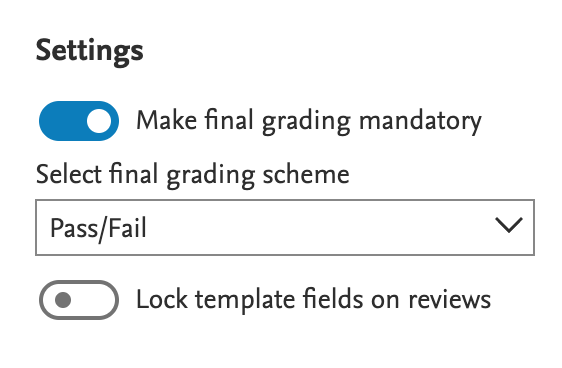
Requirements
The REF2028 module will be enabled if you also had the REF2021 module. If you do not have the REF2028 and you think you should, please contact support. We have also enabled the Review model as part of the REF2028 module.
Available resources
UK usergroup space > Documentation > REF 2028
Published at January 02, 2025
